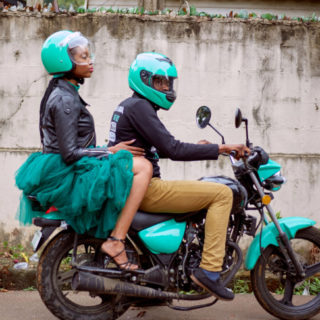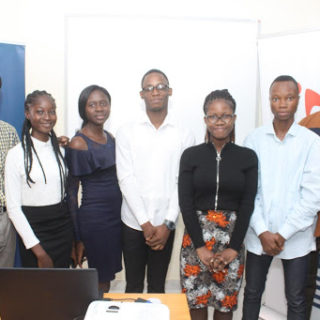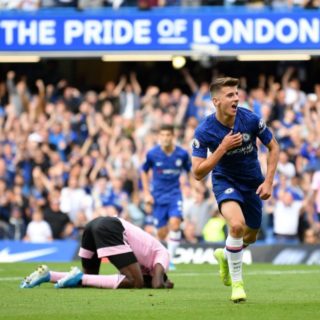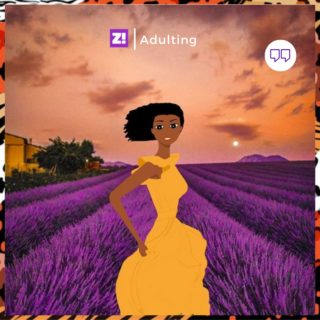KAPAICHUMARIMARICHOPACO

If you know this phrase or have heard it before, you have one guy to thank – a rapper by the name Zlatan Ibile. He says it to announce himself on a song, to end verses, and pretty much anytime he wants, like on his hit single with Burna Boy, “Killin Dem”.
Thanks to Zlatan, this phrase is becoming so common that it’s now taken for slang.
For all we know, it’s also completely meaningless.
As early as March 2018, music magazine Vibe.ng tried to provide some clarity. In an interview, they asked Zlatan what “Kapaichumarimarichopaco” means.
Our man with the green hair dye responded, “It is a spiritual language and can mean whatever you want it to mean.”
Errm, that’s not really how it works, Zlatan.
Later in the year, Trace, the French music channel, decided to do it for the culture. But just when we thought he was about to answer one of humanity’s biggest questions, Zlatan’s responded: “It means CASA BLANCA DE KATAMA TOFIA”.
Hold my hands, my gee. Do you feel that slight vibration in your brain? Are your eyes suggesting they want to weep against your best efforts? That’s what intense confusion feels like.
We still don’t know what Zlatan’s favourite slang means. But that hasn’t stopped anyone from saying it, or my editor, Fu’ad, from plastering it on the walls of his new apartment and praying to a statue of Zlatan while performing his physically-challenged Zanku.
But let’s be honest, does anyone really care what it means? Or better still, do we really want to know?
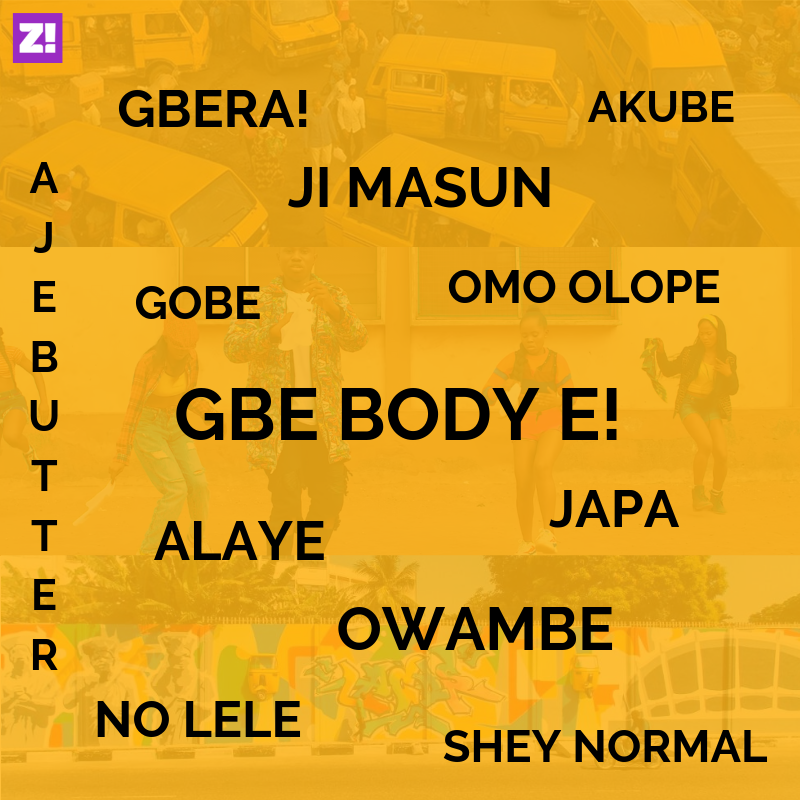
Slang is good. I can’t even begin to run through the reasons. For a start, it gives attitude to language.
Slang makes its speakers feel special like they’re part of some elite group where you have to speak in “Alaye” and “Kurombe” to collect your ID card.
But the thing is most slang is inspired by reality and as you probably know, Nigerian reality is an endless episode of Ridiculousness.
Take the slang, “Gbe Body E” for instance.
Most people use it to elicit some form of excitement or get people moving. You’ll hear it at parties when someone busts out a mean Zanku, or some wealthy bottle popper shows up.
Which is weird because the slang supposedly began in brothels in Mushin and Agege. The story goes that err, sex workers and strippers would tell their exhausted patrons to gbe body (carry their bodies) after they had been worn out by exercise.
It’s like going to the gym and your trainer works you the hell out. Then just as you break your ankle, he looks at your body on the ground and tells you to crawl home with the weights on your back.
One of my personal favourites is Ajebutter.

Everyone knows it refers to kids born with a silver spoon, right?
The literal meaning though is ‘someone who eats butter’. Join me as I try to understand why anyone thinks eating butter, which I assume people only do because there’s bread at home and payday is exactly 23 days away, is a symbol of wealth.
What does all of this mean?
Most Nigerian slang comes from street culture, a way of life that is challenging and absurd.
It’s not fancy but street culture is what most Nigerians experience on their day to day. Nothing captures our collective reality quite like the slangs that rise out of Karu, Agege or Upper Sakponba.
So the next time you tell the alaye (young man) manning your danfo (commercial bus) to give you your waso (50 naira) change, remember you’re spreading tiny bits of Nigerian ridiculousness in the air. You should be proud.
Oh. And Zlatan’s ‘Kapaichumarimarichopaco’ comes from a popular late-2000s skit where a young man desperate for quick, easy money was beaten by two conmen pretending to be native spiritualists.
What could be more ridiculous than that?
Did you enjoy this? You should sign up for our weekly pop culture newsletter, Poppin’. You’ll get to know what we’re up to before anyone else + insider gist, reviews, freebies and more. If it sounds like your deal, sign up here.

